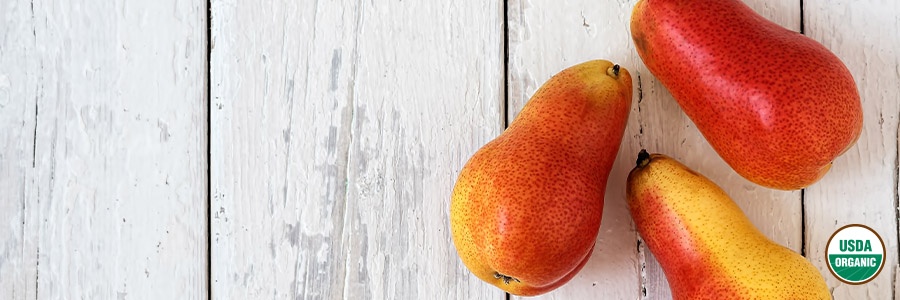


Sign-up for {N}power to get exclusive discounts, newsletters, members-only features, and more!
 Denver - Design District - Alameda and Broadway
Denver - Design District - Alameda and Broadway
368 S Broadway
Denver, CO 80209
United States
 Preferred Store:
Select a Store
Preferred Store:
Select a Store


Crimson and heavy in your hand, your mouth waters for the delicate sweetness you’re about to enjoy. It’s an instant mood boost, sinking your teeth into a perfectly ripe pear, the exquisite flavor tasting like happiness trickling down your throat. It isn’t just fantasy either—there’s a real connection between whole fruit and bliss, and here are the juicy details:
Fresh Fruit, Happy Kids: The Australian Victorian Child’s Health and Well-Being study found that more daily servings of whole fruit “significantly increased the odds” of emotional control, problem management, and relationship building skills in kids.1
Happier Grownups Too: Studies suggest that a diet rich in high-fiber raw fruits and veggies is associated with less anxiety and more happiness in adults, and fiber itself may be a key piece of the puzzle.2 3
Happy Gut = Happy Life: Fiber feeds bacteria in the colon, contributing to a diverse balance of healthy gut bacteria, and a healthy intestinal microbiome is essential for a range of things from immunity to weight control, healthy aging, and psychological wellbeing.4 5 Know what fruit has a lot of fiber?
More Pears, More Fiber: Pears are an excellent source of fiber—one medium pear contains 6 grams (most adults should eat 25-30 grams every day). Most of the fiber is in the skin, so don’t pull out the peeler.6 7

A fine fall day, a juicy pear, and you—can you taste the happiness? Just be sure to make it organic. September is Organic Harvest Month, a time to celebrate the regenerative impacts of organic farming and to honor it with our food choices. Wandering through an organic orchard, thick with fruit and buzzing with the energy of living creatures, is an experience in harmony. It’s a place where food is grown without the use of toxic pesticides, where building soil health and nurturing biodiversity are the way of life.9
Sadly, it isn’t so in every orchard. Forty-nine pesticide residues were found on conventional pear samples in a recent analysis, including the reproductive toxin carbendazim and several bee-killing insecticides, landing the fruit on the Environmental Working Group’s (EWG) “Dirty Dozen” list of most contaminated produce. The EWG also found that pears had more pesticide residue on average than any other tree fruit on the list.10 Choose harmony, choose a better future for our planet, choose organic!



Sign-up for {N}power to get exclusive discounts, newsletters, members-only features, and more!
